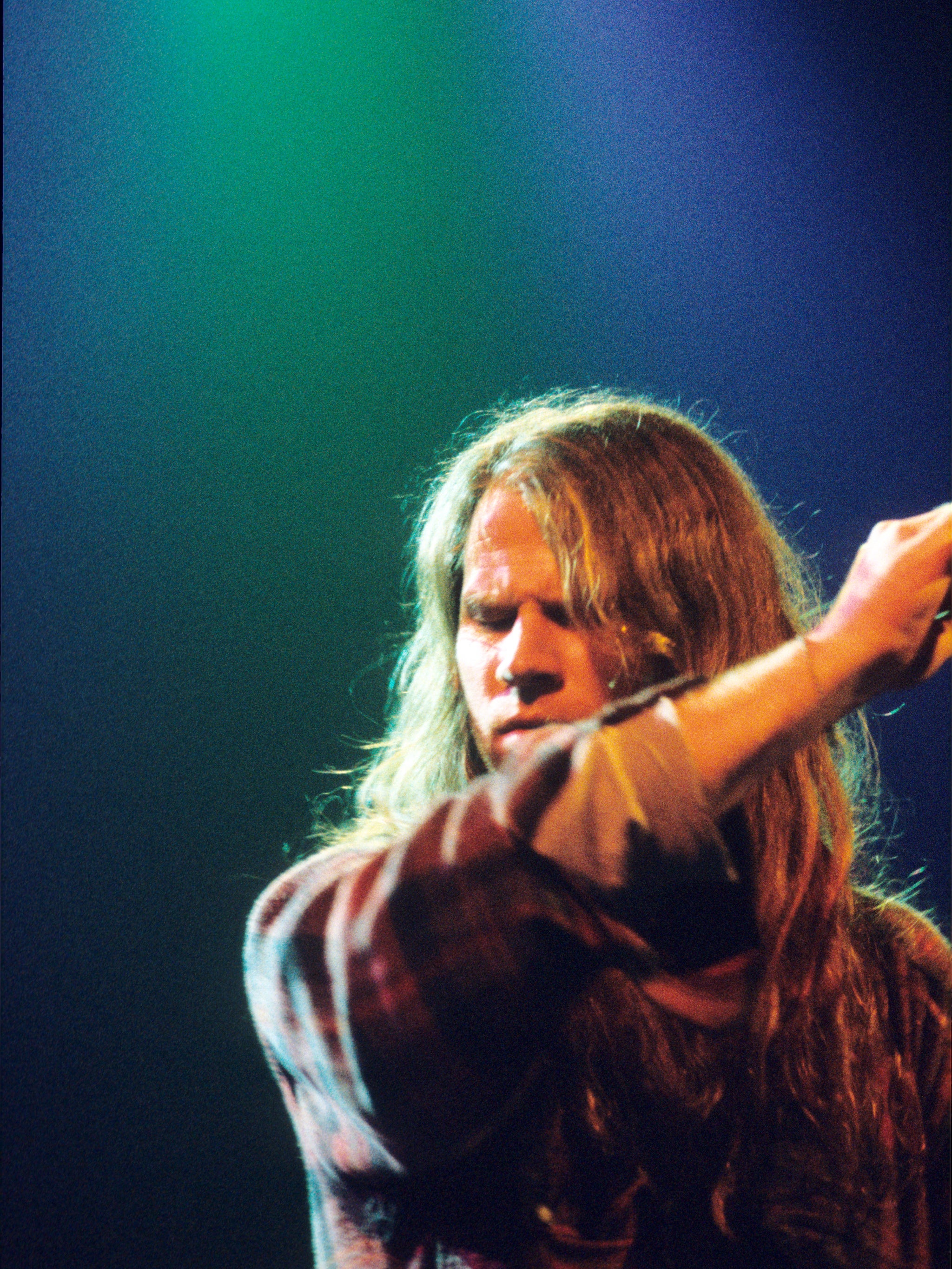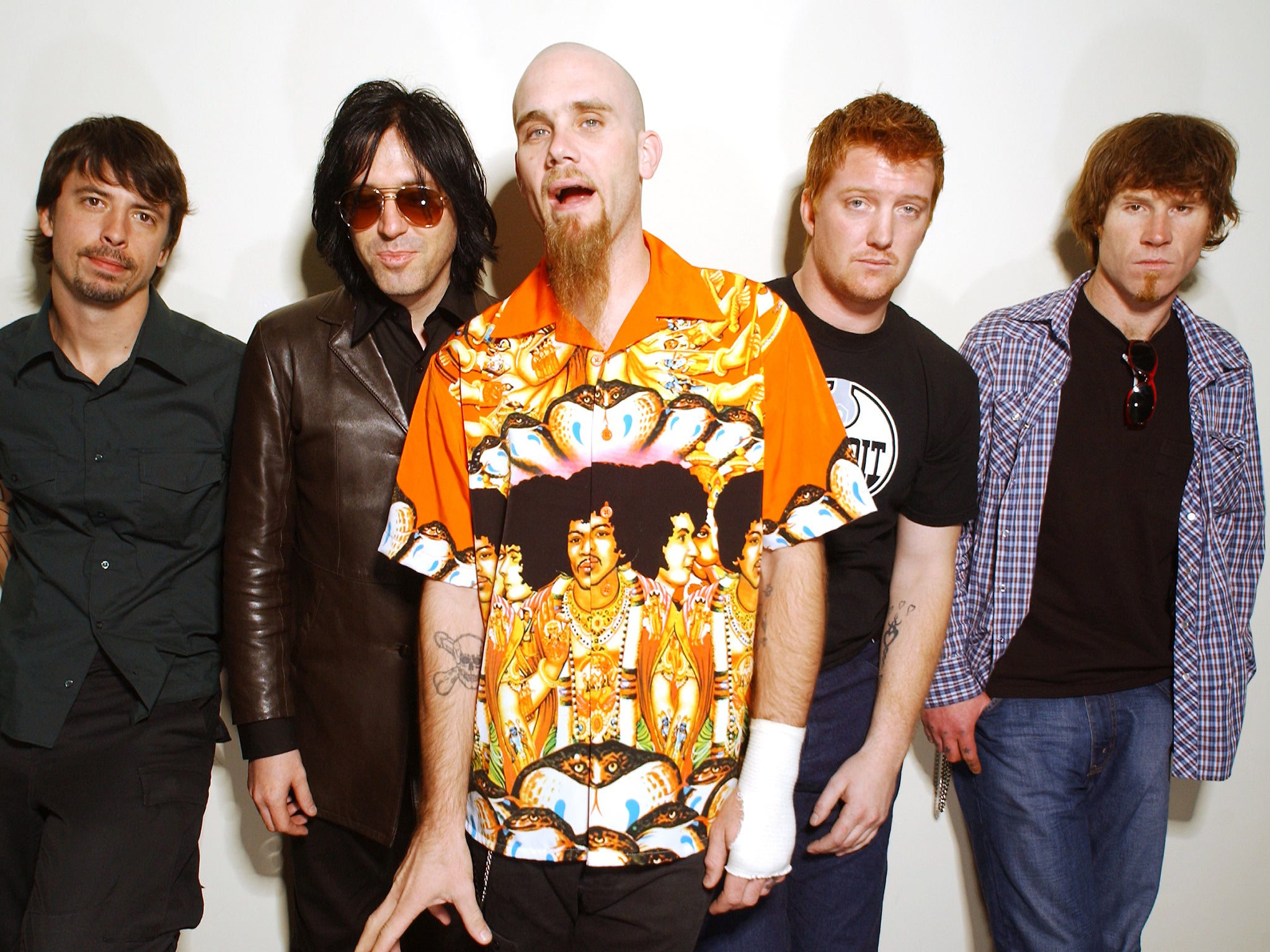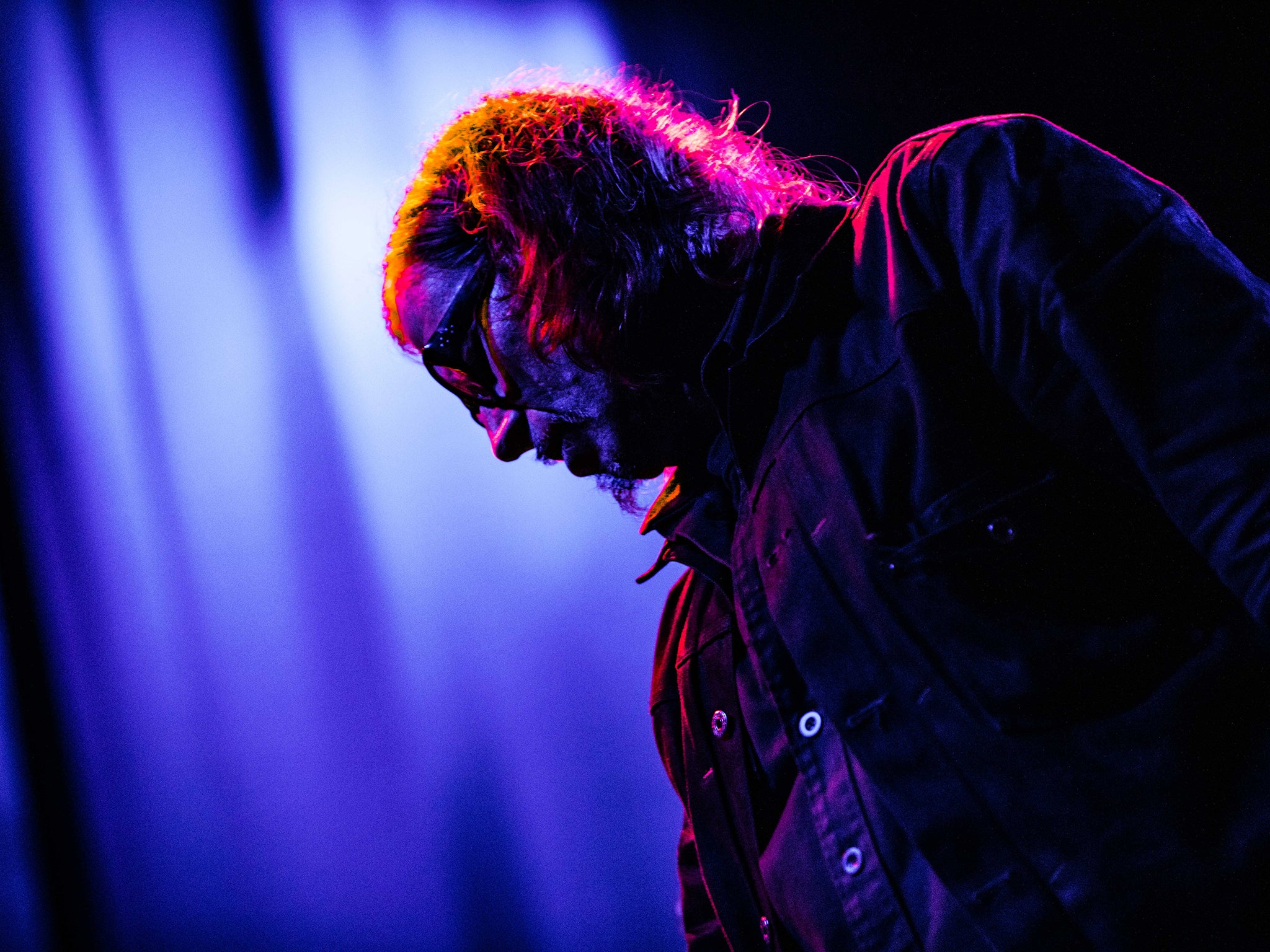
Mark Lanegan, the gravel-voiced singer-songwriter who helped pioneer grunge music with his rock band Screaming Trees, then launched a career as a bluesy, introspective solo artist while collaborating with groups including Queens of the Stone Age, has died aged 57.
As the lead singer of Screaming Trees, Lanegan was an architect of the high-octane, Seattle-based grunge scene, which reached a national audience in the late Eighties and Nineties with the rise of bands including Nirvana, Pearl Jam, Alice in Chains and Soundgarden. His own group never reached those commercial heights but scored an MTV and alternative radio hit with its 1992 single “Nearly Lost You”, which was featured on the soundtrack of Cameron Crowe’s Gen-X romantic comedy Singles.
Honing a hard-edged sound that mixed psychedelia, punk and rootsy rock, Screaming Trees made seven albums before breaking up in 2000, following years of drug- and alcohol-fuelled acrimony between Lanegan and his bandmates.
By then, Lanegan had also established himself as a brooding, darkly poetic solo artist, partnering with producer and musician Mike Johnson to record albums such as The Winding Sheet (1990), which former Nirvana drummer Dave Grohl called “one of the best albums of all time”, citing it as a key influence on Nirvana’s celebrated MTV Unplugged performance.
Reviewing Lanegan's second solo album, Whiskey for the Holy Ghost (1994), All Music journalist Mark Deming wrote: “Lanegan’s voice, bathed in bourbon and nicotine, transforms the deep sorrow of the country blues (a clear inspiration for this music) into something new, compelling, and entirely his own.”
Lanegan released a dozen solo albums while venturing into new musical territory, collaborating with artists including Velvet Underground co-founder John Cale, singer-songwriter Neko Case and the electronic music pioneer Moby.

He joined Queens of the Stone Age as a guest singer for several records; partnered with Greg Dulli, the frontman of the Afghan Whigs, to form the Gutter Twins; recorded with the rock supergroup Mad Season; and made three well-received albums with former Belle and Sebastian singer Isobel Campbell, whose airy vocals were a warm counterpoint to his own booming baritone.
For much of his career, he also battled addictions to alcohol, drugs and sex, which he recounted in a harrowing 2020 memoir, Sing Backwards and Weep. Reviewing the book for Britain’s New Statesman magazine, author John Niven wrote that Lanegan provided “one of the most compelling accounts of squalor and misery ever committed to paper”, detailing his turn from alcohol to heroin to crack cocaine, and the ways he would beg, borrow and steal to fund his habit.
Lanegan said he used torn tube socks to cover track marks on his forearms, and was hospitalised during a 1992 tour with an arm that was infected so badly that doctors considered amputating it. “I almost did [die] many times,” he once told The Seattle Times. “And tons of my friends did. But, when you’re in the midst of what is ultimately just a horrible nightmarish existence, the last thing you want to believe is that you might not get through it.”

As he told it, he helped save his friend Kurt Cobain from at least one overdose but never picked up the phone when the Nirvana frontman kept calling on the day he died by suicide in 1994. “I considered him a cherished little brother,” Lanegan said. “That’s a guilt I’ll always have.” (He later mourned the loss of his close friend and collaborator Layne Staley, the lead singer of Alice in Chains, to a drug overdose in 2002.)
Lanegan said his own life was saved in large part because of singer-songwriter Courtney Love, Cobain's widow, who helped pay for him to go to a drug rehab programme in the late 1990s at a time when Lanegan was homeless. In its wake, he refocused his attention on music and said he sought to move on by distancing himself “from the whole Seattle thing”, carving out a career separate from his place in the development of grunge.
“I wish I could say I’m a perfect example of transformation, and transcendence, but I’m basically still a guy who considers himself a breakfast cook who’s been singing for a while,” he told The Guardian in 2020. “I’m still a deeply flawed person. The difference is, I'm aware of it.”

Mark William Lanegan was born in Ellensburg, Washington, on 25 November 1964. His parents were schoolteachers who divorced when he was young – as he told it, his mother was abusive, his father neglectful – and by age 12, Lanegan had become what he later described as a “compulsive gambler, a fledgling alcoholic, a thief, a porno fiend”. He left high school with a rap sheet that included shoplifting, drug possession and insurance fraud.
Lanegan was a teenager when he met brothers Van and Gary Lee Conner, who played bass and guitar and shared his love of punk and garage rock. They formed Screaming Trees in the mid-1980s and, with the addition of drummer Mark Pickerel, released their first studio album, Clairvoyance, in 1986.
“The band was sick, violent, depressing, destructive, and dangerous,” Lanegan wrote in his memoir, adding that it was also “my ticket out of my go-nowhere life in my hometown”.
His marriage to musician Wendy Rae Fowler ended in divorce. Survivors include his wife, singer Shelley Brien, with whom he moved from Los Angeles to Ireland in 2020.
As a solo artist, Lanegan veered from acoustic dirges on his early albums to a rock-oriented sound on Bubblegum (2004), which featured contributors such as English singer PJ Harvey, and to a more polished electronic sound on Phantom Radio (2014). He started to hit his stride musically after getting out of rehab, when he began working with Queens of the Stone Age and released his album Field Songs (2001).
“That’s when I started to feel like I knew what I was doing finally with my voice. I knew what to say, and I didn't have to think too much about it,” he told the Los Angeles Times.
“It was no longer a struggle,” he added. “It was, in fact, a joy. A pain turned into something that I looked to as a form of therapy. I found that if I started playing guitar, the rest of the world just sort of melted away. When that happened, then I knew it was something I was going to stick with. That was a good 15 years into making records. I have a high tolerance for pain.”
Mark Lanegan, songwriter and musician, born 25 November 1964, died 22 February 2022
Jennifer Hassan contributed to this report
© The Washington Post







